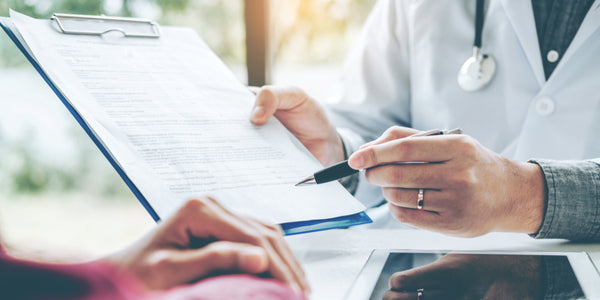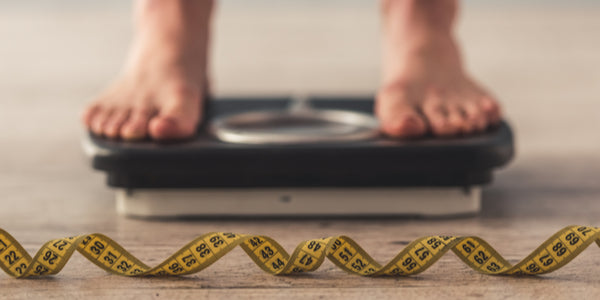
Diabetes is a growing economical and health concern affecting the lives of millions. What's more, diabetes is the seventh leading cause of death in the U.S.
The facts and figures are nonetheless overwhelming America's population and financial health. And there are companies abusing the opportunity and making illegal products and claims to "cure" diabetes.
Fortunately, trusted organizations are making an effort to diffuse illegal remedies. They also offer evidence-based guidelines to help manage diabetes once and for all.
What is Diabetes?
Diabetes is a disease that affects blood glucose levels. This mostly occurs due to the absence or resistance to insulin.
Insulin is a hormone that assists in glucose utilization. It allows glucose to exit from the blood and enter the cells following carbohydrate consumption. So when insulin function is compromised, glucose starts to build up in the blood, hence having "high blood sugar."
There are two types of diabetes, including types 1 and 2 diabetes, which can be triggered by genetic and environmental factors. Type 1 can develop at any age, but typically occurs during childhood or adolescence. Type 2 diabetes can develop at any age and is often preventable.
Lifestyle habits increase the risk of type 2 diabetes, including a poor diet and physical inactivity. These also increase the risk of obesity.
Obesity & Diabetes
Though not everyone who has type 2 is overweight, obesity is a significant risk factor for type 2 diabetes.
People who carry weight in the abdominal region are also more likely to develop diabetes. They also have a greater risk of insulin resistance compared to those with more fat stores in the hips and thighs.
According to the Obesity Action Coalition, the risk of type 2 diabetes rises with increasing body weight at all ages. Compared to normal weight adults, type 2 diabetes risk is three to seven times higher in those affected by obesity. Individuals with a body mass index greater than 35 are also 20 times more likely to develop diabetes.
Diabetes Symptoms
Experiencing symptoms often depends on the degree of elevated blood sugars. Some people often do not display any symptoms. This is especially prominent for those with prediabetes or type 2 diabetes.
However, common symptoms of diabetes include:
• Increased thirst and frequent urination
• Increased hunger
• Blurred vision
• Extreme fatigue
• Slow-healing sores or frequent infections
• Tingling, pain, or numbness in the hands/feet
• Areas of darkened skin
See a doctor if noticing any of these symptoms. Early detection and treatment is key for lowering the risk of complications of diabetes.
The Facts & Figures Behind Diabetes
The statistics of diabetes are overwhelming. And the facts and figures continue to substantially increase healthcare costs and death rates across the world.
Cost of Diabetes
The Centers for Disease Control and Prevention (CDC) reports medical costs, lost work and wages total $327 billion each year for those diagnosed with diabetes. Medical costs for people with diabetes are also twice as high as for people who do not have diabetes.
Unfortunately, diabetes rates continue to grow. The CDC also reports the number of adults diagnosed with diabetes has more than tripled. This number is growing as the American population has aged and become more overweight or obese in the last 20 years.
The World Health Organization (WHO) further details about 422 million people worldwide have diabetes. But people with diabetes can live and long healthy lives when the condition is detected and well-managed.
However, it is likewise important to be wary of illegal remedies for diabetes.
Illegal Remedies for Diabetes
Managing diabetes is important. But so is doing it safely. And harmful and illegal remedies continue to flood the marketplace promising to prevent, treat, and cure diabetes.
Such products include dietary supplements, over-the-counter (OTC) drugs, ayurvedics, and unapproved prescription drugs. Such natural remedies and products are sold online and in retail stores.
Though not inclusive to this list, some violating products include Diexi, Sugar Balancer, Diabetes Daily Care, and Eradicator.
FDA Crackdown on Diabetes Remedies
The Food and Drug Administration (FDA) is making a vast effort on cracking down on companies selling illegal diabetes remedies.
The FDA has issued 15 letters warning a number of domestic and international companies selling illegal products. Such products claim to treat, cure, prevent, or mitigate diabetes and related complications. Such complications attributed to diabetes may include blindness, nerve damage, kidney failure, heart disease, and lower-extremity amputations.
Companies are asked to provide a written response to address the violations covered in the letters. Companies that fail to respond to the warning letters or make adequate corrections could be subject to further actions. These include seizure, injunction, and criminal prosecution.
Such products are in no way a substitute for substantial diabetic treatment, even despite their temptation. If it sounds too good to be true, then it is likely a scam. The FDA encourages consumers to watch out for red flags:
• "Lowers your blood sugar naturally!"
• "Inexpensive therapy to fight and eliminate type II diabetes!"
• "Protects your eyes, kidneys, and blood vessels from damage!"
• "Replaces your diabetes medicine!"
• "Effective treatment to relieve all symptoms of diabetes!"
• "Natural diabetes cure!"
Ultimately, always consult with a medical professional regarding safe and proper care. They will likely advise making healthy lifestyle changes, including dietary modifications and regular exercise. Coordinating with a Registered Dietitian can also ensure a nutrition needs are being met.
Also gain control of diabetes with the nation's leading weight loss meal delivery service!
BistroMD was founded by Dr. Caroline Cederquist and husband Ed Cederquist. Dr. Cederquist is a board certified and experienced in the field of weight loss. Husband, Ed Cederquist, is a renowned foodie and committed to utilizing the freshest and highest quality ingredients for each meal.
A team of dietitians and chefs ensure balanced and flavorful meals designed for weight loss and diabetic management. Each meal supplies 1,100 to 1,400 calories daily and 40 to 50 percent total caloric intake comes from adequate protein, 20 to 25 percent from healthy fats, and 30 to 35 percent from complex carbohydrates.
With the diabetic program, meals supply 25 net grams of carbs or less and snacks supply 15 or less. Meals and snacks also deliver adequate protein. Eating these meals and snacks every 3 to 4 hours helps control blood sugars. It also helps prevent metabolism from slowing down and keep hunger stable.
Menu options are also ample in variety and flavor. For instance, get the day started with a caramelized mushroom and onion frittata. Also indulge on southwest bison meatloaf with smoky tomato glaze for dinner. Truly, diabetic-friendly meals have never been so convenient and desirable!








